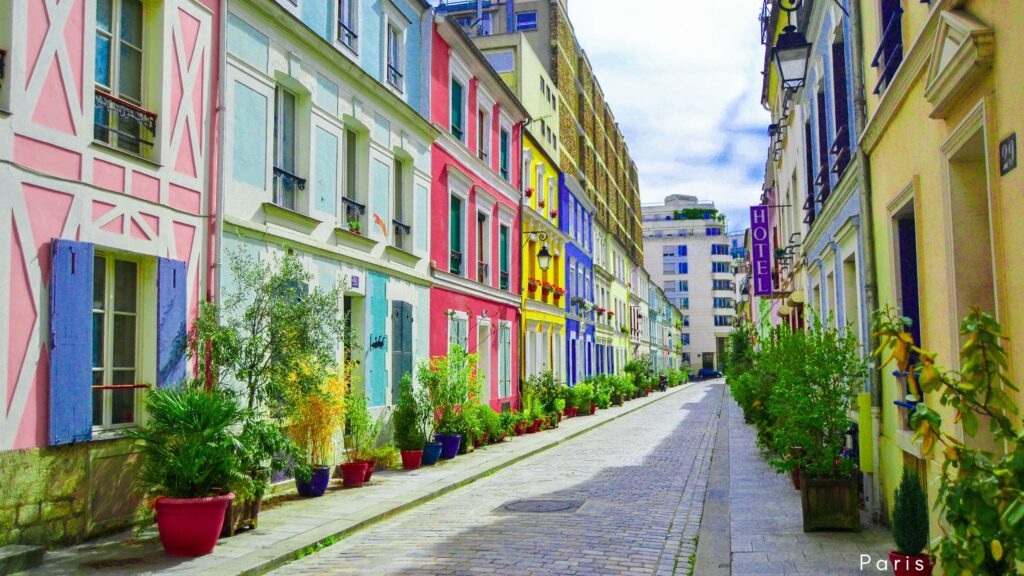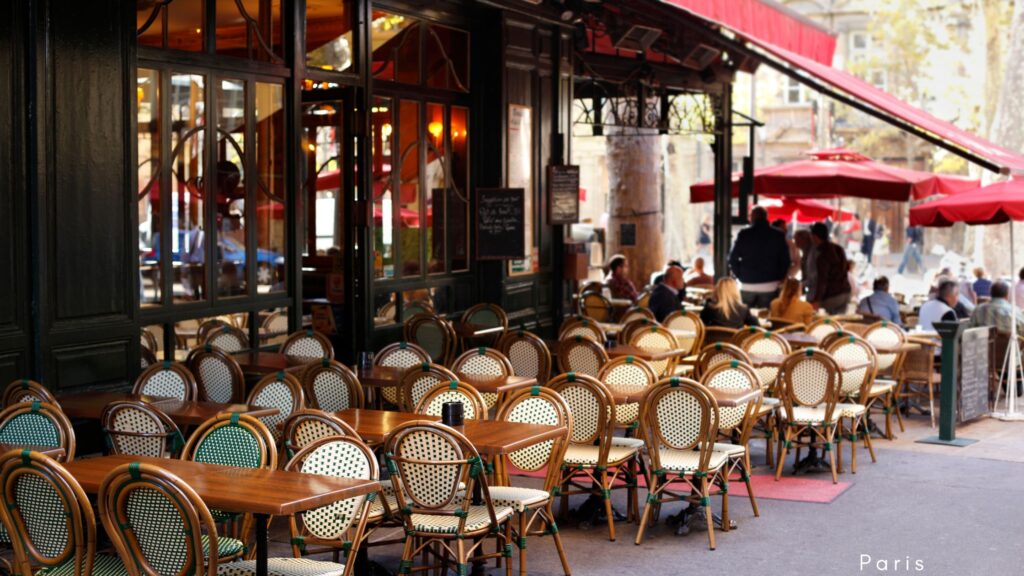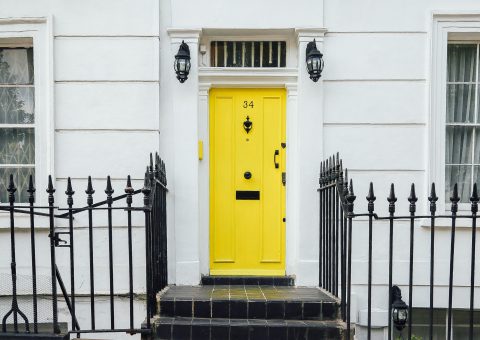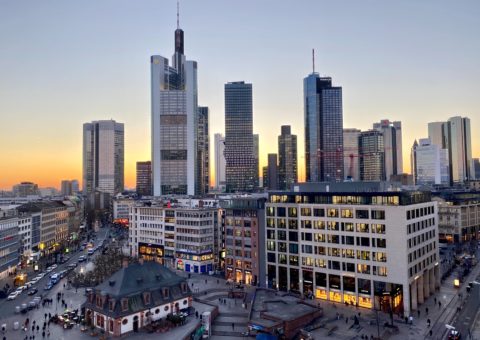Moving to Paris: Essentials Tips For Relocation
If moving to Paris conjures up images of moonlit walks along the Seine, enjoying a croissant et café in the morning and alfresco dining in the evening, then you’d be right. But just before you can take in all of the joys that Paris has to offer, you need to sort out some of the practical stuff.
Booking a flight to France is easy. Getting a visa to stay there for a long time is difficult. And finding your perfect abode can be an ordeal. But we’re here to help, especially when it comes to nailing down that first apartment in the city. We’ve put together these tips for moving to Paris so that you’ll have all of the know-how to move to France’s chic capital with confidence and excitement.
So, what are you waiting for? Take a read!
Average rent in Paris
Perhaps one of the most frustrating things about moving to Paris is the price of rent and accommodation. If you’re moving here from another large European capital, the prices may come as no surprise to you. If you’re moving here from a smaller town, or from outside of the EU, you may find Paris to be frustratingly expensive. However, like any big city, there are always ways to save money on accommodation.
The average rent across the city does hover between 1,400 EUR to 2,600 EUR per month. However, you can opt for the more budget-friendly outer arrondissements if you’re looking for something below the 1,000 EUR per month mark.
This is how much you can expect to pay per square meter in some of Paris’ most popular arrondissements:
★ Upscale Arrondissements
1st Arrondissement
- Known for landmarks like the Louvre and Palais Royal.
- Average rent: €34 per square meter.
- Average rent for a 1-bedroom apartment: approximately €2,040 per month (60 sqm).
6th Arrondissement
- Features the Latin Quarter and Luxembourg Gardens.
- Average rent: €35.1 per square meter.
- Average rent for a 1-bedroom apartment: around €2,106 per month (60 sqm).
7th Arrondissement
- Includes the Eiffel Tower and Les Invalides.
- Average rent: €34.1 per square meter.
- Average rent for a 1-bedroom apartment: about €2,046 per month (60 sqm).
✔ Affordable Arrondissements
10th Arrondissement
- Neighborhoods: Canal Saint-Martin, Gare du Nord.
- Vibrant with diverse communities.
- Average rent: €30 per square meter.
- Average rent for a 1-bedroom apartment: approximately €1,800 per month (60 sqm).
19th Arrondissement
- Neighborhoods: Parc des Buttes-Chaumont, La Villette.
- Features Parc des Buttes-Chaumont.
- Average rent: €26.2 per square meter.
- Average rent for a 1-bedroom apartment: around €1,572 per month (60 sqm).
20th Arrondissement
- Neighborhoods: Belleville, Ménilmontant.
- Known for its bohemian atmosphere.
- Average rent: €27.4 per square meter.
- Average rent for a 1-bedroom apartment: about €1,644 per month (60 sqm).
Overall, the cost of renting in Paris varies widely, with upscale areas commanding higher prices and more affordable districts offering budget-friendly options.

Places to live in Paris
If you’re struggling to get your head around Paris’ 20 arrondissements, the French word for districts, and can’t decide where you want to live, we’ve already put together an extensive guide to the best neighborhoods in Paris for you to check out.
Paris’ districts are arranged in a circle, almost like the shell of a snail. At the centre of the shell is the 1st arrondissement, and at the outer edge, the 20th. As a general rule of thumb, the lower the number of the arrondissement, the closer it is to the city center. The larger the number, the further away it is.
In this case, smaller numbers aren’t always better. The central arrondissements tend to be more expensive and overcrowded, but living here means you’ll be surrounded by classic Parisian buildings and lots of culture. The outer districts are slightly more budget-friendly, the streets are quieter, but you will need to travel a little further to get into the city center.
Whether you’re looking for a family-friendly neighborhood, somewhere that’s bustling with life, or a sleepy suburb, Paris will have something for you. Here’s what we found from our research:
Best Paris neighborhoods for families: 16th, 7th, and 17th
Affordable places to live in Paris: 11th, 18th, and 20th
Best places to live in Paris for expats: 4th, 1st, and 6th
Best places to live in Paris for young professionals: 5th, 11th, and 10th.
Buying vs renting after moving to Paris
Should you buy a home after moving to Paris? Or should you rent a home after moving to Paris?
Well, that depends on how long you’re relocating to Paris for.
And, of course, in the VERY long-term, buying is always going to be more financially-beneficial than renting: “according to a study by Meilleurtaux, it would take an average of thirty years to recoup a property investment in Paris.” (source).
So: if you DEFINITELY know you’re gonna be in Paris for 30+ years, we recommend buying.
But you probably don’t know that—so we recommend renting instead:
When you rent, you don’t need to commit long-term to a neighborhood, you don’t need to pay ‘taxe foncière’ (an annual property-ownership tax in France), and you don’t need to make any big decisions right now. You also don’t need to go through any major bureaucracy, and you don’t need to consult any legal professionals.
All this said, if you do want to buy a place, the best websites are SeLoger, and Particulier à Particulier (also known as just ‘PAP’). But it’s often best to consult a local agent—they have lots of contacts, they speak the local language, and they can help you with complications and bureaucracy.
How to find a short-term rental after relocating to Paris
Because many people move to Paris each year (over 20% of the city’s residents were born outside France!), you have lots of competition when finding a place to live:
- Potential renters often outbid each other
- Local landlords sometimes charge high prices for bad places
- And natives (who speak the local language!) have an advantage over you
But if you’re patient, it’s absolutely possible.
So here are some Homelike hacks and tips on finding a place to live after relocating to Paris:
- Many expats start their new-home search on Booking (and live long-term in a hotel or hotel-apartment) or AirBnB. In the beginning, expats prefer to rent furnished apartments in Paris. Some even prefer serviced apartments in Paris with certain added amenities.
- Facebook is another option, but it takes much patience and persistence. Hop onto the platform, and search for ‘apartments Paris,’ ‘rentals Paris’ and ‘flats in Paris.’ Be wary of high-charging local landlords, who sometimes make contract terms unclear.
- If you don’t mind living in a house share (a pretty good way to make friends!), consider using Cohab, a site placing city newcomers into shared fully-furnished homes. Okay for young people; not so good for older people, couples, or families.
- You can also try real estate websites, like those we’ve already mentioned (SeLoger, and Particulier à Particulier).
- … but, overall, we recommend using Homelike (yep, that’s us; we wouldn’t be very good at our jobs if we didn’t recommend ourselves). Our apartments in Paris are fully-furnished, ready to move into today, and perfect for living and working—they save you lots of stress, we have no hidden fees or charges, and we make relocating to Paris a whole lot easier.

Rentals in Paris that meet your requirements
How to find a long-term rental after relocating to Paris
Finding a long-term rental after relocating to Paris comes with the same problems as finding a short-term rental after relocating to Paris:
Namely, you don’t speak the local language, you don’t know which prices are fair prices, and some landlords aren’t particularly reliable.
… but to add to all that, you also aren’t 100% certain which Paris neighborhoods are best for you—some are ideal for families, some are best for singles, some are better for couples, and some are only suited to hip and happening nightlife lovers.
And until you’ve explored them for yourself (after moving to Paris), it’s tough to know which areas and neighborhoods will match you and your personality.
So if you’re relocating to Paris long-term, here’s what we recommend:
Before arriving in the city, find a short-term rental for 3 months or so.
… and while you’re in that 3-month short-term rental, explore the city properly. Check out which neighborhoods you like, and which neighborhoods you don’t like. Open a bank account, work out a realistic budget, and learn some French. Make some local contacts, and get to know a couple of reliable and trusted real estate agents.
After you’ve done all that, you’ll be MUCH better equipped to find a perfect long-term place you love. You don’t want to wind up with a 2-year contract for a home you don’t like in a neighborhood you hate.
Cost of living in Paris
According to Numbeo:
Living in Paris (including rent and all other costs)…
- … is around 27% cheaper than living in London.
- … is around 18% more expensive than living in Berlin.
- … and is around 32% more expensive than living in Madrid.
At the time of writing, here are some of the prices you can expect after moving to Paris:
Housing and Utilities
- One-bedroom apartment in city center: €1,445 per month
- One-bedroom apartment outside city center: €980 per month
- Utilities (gas, water, electricity): €235 per month
- Internet (60 Mbps or more, unlimited data): €29 per month
Transportation
- One-way public transport ticket: €2.15
- Monthly public transport pass: €85
Dining
- Meal for one in an inexpensive restaurant: €18
- Three-course meal for two in a mid-range restaurant: €75
- One pint of domestic beer: €7
- Regular cappuccino in a cafe: €4.23
Groceries and Daily Necessities
- Wine (good quality bottle): €12
- Water (1.5 liters): €1.10
- Milk (1 liter): €1.55
- Bread (loaf of fresh white bread): €1.80
- Eggs (dozen large): €5.85
- Chicken breasts (1 kg): €8.10
- Cheese (500 grams local cheese): €7
- Fruits and Vegetables:
- Apples (1 kg): €2.41
- Potatoes (1 kg): €2.32
- Tomatoes (1 kg): €3.71
Personal Care
- Toothpaste (tube): €2.57
- Shampoo (400ml bottle, 2-in-1): €3.75
- Deodorant (50ml roll-on): €3.66
- Tampons (box of 32): €4.44
- Haircut (standard men’s in expat area): €22
Entertainment and Leisure
- Cinema ticket (international release): €13
- Theater tickets (best available seats for two): €104
- Cocktail drink in a downtown club: €14
- Gym membership (one-month pass): €38
Miscellaneous
- Cleaning help (hourly rate): €16
- Laundry detergent (3 liters): €11
These bullet points provide a comprehensive view of the costs associated with living in Paris, reflecting the variety of expenses that residents can expect
These costs can add up quickly, making Paris one of the more expensive cities to live in, but many residents find the cultural, social, and professional opportunities worth the expense.

French visa requirements for Paris
Unless you’re coming from one of the 30 countries in the EEA (European Economic Area) or are a Swiss national, you’ll need a visa if you want to move to Paris. Getting your hands on a visa can take up to two months, so make sure you apply well in advance of moving day.
There are four reasons why you can apply for a long-stay visa in Paris, these include:
- Tourist/personal reasons
- Business reasons
- Education
- To join family members
The visa application process varies depending on the passport you hold, so you’ll want to check out the French government’s website’s requirements for all of the details. Here are the general steps you’ll need to take to apply for a visa.
- Gather all of the necessary information you’ll need for your visa application.
- Fill out the visa application form online and upload the relevant documents.
- Book an appointment with your local visa application center.
- Submit your file, and pay the relevant visa fee.
Track the progress of your visa and wait for it to be approved!
Relocating pets to Paris
It’s not difficult to bring your pet to Paris, but it does require a little bit of forethought and some careful planning.
First of all, your pet must be microchipped and have a valid EU Pet passport if you’re moving from inside the EU. Your pet will also need proof of an in-date rabies injection.
If you’re coming from outside of the EU, you will also need to get a non-commercial EU health certificate from a licensed vet. This needs to be issued within ten days of moving to Paris. If you’re flying into France, only certain international airports will accept your pet, including Paris, Toulouse, Reunion, Nice, Marseille, and Lyon.
Other than the cost of vaccines and microchips, the only other cost you’ll incur is paying for the transportation of your pets. Airlines charge different amounts depending on the size and weight of your pet but expect to pay around 150 EUR.
For those of you moving to Paris from within Europe, you can also choose to drive yourself, or jump on a train. If you’re driving, you’ll simply need to present your pet and their documentation at each of the borders you drive across. If you choose to travel by train, some trains will allow your four-legged friend to travel in the carriage with you. Others will ask you to bring your pet in a crate which will travel alongside the luggage compartment.
Currently, there is a limit of bringing in five pets per person, so you’ll need to pick your favourites if you’ve got a lot of four-legged friends.
Learning French
It’s more than possible to move to Paris without learning French. However, a little bit of language does go a long way in the capital city, and most locals will expect you to at least try and speak to them in French before reverting to English.
Getting your head around the basics of the language before you move will make it a lot easier to pick up the language while you get there. You can do this by watching French news and television programs, by joining a language course or through an app such as Duolingo..
Learning French will also make it much easier to find a job once you’ve settled in Paris, as most positions in respectable companies will expect you to know at least the basics of French. Plus, integrating into your local community will be much smoother if you can have a conversation with your neighbors and work colleagues.

Setting up bank accounts after relocating to Paris
After moving to Paris, you’ll need a French bank account.
(without one, it’ll be impossible to pay bills, rent and utilities—and daily life will be a lot tougher).
So… here are some of the banks we recommend (and why):
- The biggest bank in France, managing around 60 million French accounts
- They’re a trusted name—they’ve been working for over 200 years
- Their terms and processes are very simple, especially for newbies and non-residents
- You get a wide range of checking and savings accounts, with some super-competitive high-interest options
- You’ll find a HUGE number of branches across Paris (so it’s very easy to see staff and get help)
- They have many offers and reductions for people aged 18-24
- In many ways, these guys are pretty similar to BNP Paribas. They’re not quite as popular, and they don’t have as many branches or as much history. But like any other main-street bank, you get lots of account options, along with many branches, and helpful staff. The 6th-largest bank in Europe, they have offices around the world. They’re an excellent option if you want a traditional in-person account.
Wise (formally known as ‘TransferWise’):
- These guys have no physical branches—instead, they’re an online-only option you can use across the world
- It’s VERY easy to open an account you can use in France; the entire process is online, and only takes 2 minutes. You simply need a smartphone, proof of your passport and visa status, and proof of your French address
- They deal with more than 40 currencies, and you can send money to over 160 countries—ideal if you’re a digital nomad working online
- The foreign-exchange fees are VERY low—some currency conversion fees are as little as 0.33%.
- Another online-only option, these guys are from France, and based in France (so they’re a good compromise between a ‘real’ bank and a standard online-only bank)
- They’re reliable and trusted, with over 3 million users across France
- Their online interface is super user-friendly
- Their charges are often lower than those you get from non-online French banks
- Some of their fixed-term saving accounts offer 3% interest or more
N26:
- Based in Germany, these guys are another online-only option; and they operate with a full German banking license
- Although they’re not based in France, they’re pretty popular in France—with 2.5 million users across the country
- They have French customer support
- Opening an account is fast and simple, the interface is easy to use, and they were voted “best bank in the world” in 2023
- Unlike some international online banks, they offer French IBAN accounts
(note: although online-only banks are often excellent and convenient, we *don’t* recommend using an online-only bank as your long-term primary bank account. They’re not as reliable as traditional banks, it can sometimes be tough to reach customer support, and some of them aren’t ‘actually’ banks—Wise, for example, instead of being an actual bank, instead calls itself “a trusted Money Services transmitter that is regulated by Federal and State regulators.”)
Top Homelike tip: here’s a great comparison of some of the current high-interest bank account options in France. It’s up to date, and it’s an easy way to start getting your French finances in order.
Essential services and utilities setup
After moving to Paris, you’ll of course want to make sure you have:
- Gas
- Water
- Electricity
- … and internet
EDF and Engie are France’s two most popular energy providers—they have many different packages and price plans for supplying both electricity and gas. All their tariffs are regulated by the French government (which isn’t the case with other energy providers).
For water, things are a little simpler—you don’t choose a provider. Instead, your water is supplied by Eau de Paris (no matter which part of the city you’ll be living in).
To set up your internet, you have many companies to choose from: the most popular are SFR, Orange, and Free. To see the best options and offers, use a comparison site, like JeChange.
The exact set-up requirements (for gas, electricity, water and internet) will vary from apartment to apartment. Maybe your landlord already has the utilities set up, and can simply transfer them to your name. Maybe the landlord has no utilities set up, and you’ll need to do it yourself. Maybe your landlord will help you. Maybe they won’t.
In any case, to have utilities put into your name, you’ll need proof of identity, proof of address, and details of your French bank account.
Time-saving stress-dodging top tip: if you move into a serviced apartment in Paris, you don’t need to pay any bills or utilities, and you don’t need to fret about getting your amenities installed. When you move into one of our places, all costs are covered in one set fee, no extra paperwork is required, and fast and reliable internet is already installed for you…
… so you don’t need to worry about setting anything up, you don’t need to deal with any bureaucracy, you don’t yet need a French bank account, and you don’t need to be any more stressed than you probably already are. See—we told you Homelike were helpful 😉
Health insurance in Paris
France is recognized and praised around the world for its fantastic public healthcare facilities. In fact, it’s regularly voted as one of the top ten healthcare systems in the world.
If you hold a passport from a country in the EEA, you should apply for a European Health Insurance Card (EHIC) before leaving home. This will entitle you to free medical treatment during your stay in Paris and is normally valid for up to five years. An EHIC card only covers you in certain situations, so make sure you know what you may have to pay for before you go.
Once you’ve lived in France for three months, and if you intend to stay for at least another three, you’ll be eligible to be covered by France’s public healthcare system. To do this, you’ll need to register with your local healthcare provider to receive a carte vitale. Keep this safe and present it each time you see a doctor. The public health system in France will generally cover you for 70% of your medical costs. The rest you will need to pay for yourself.
If you’re moving to Paris with a job offer, your employer will more than likely offer you insurance from the beginning of your stay. You’ll need to purchase public health insurance that will cover you in France for any other situation.

Getting a sim card in Paris
You’ll find shops selling sim cards on every corner in Paris, so you’ll have no problem sorting out a contract on your first day of moving to the city. Paris also has excellent 4G coverage and mobile phone signal, so you should always be able to stay connected around the city.
France’s mobile market is a competitive one, which means prices are generally affordable and similar across the board. It’s still worth shopping around for the best deal when you arrive from companies such as:
You’ll generally have the option to choose between a contract or a prepaid sim card. Most expats tend to choose the latter as it’s the quickest to set up, and it gives you the freedom to use the sim card for as short or as long as you would like to. If you’re certain that you’re going to stay in Paris for a while, contracts will generally save you money in the long-term.
Public transport in Paris
The public transport system in Paris is considered one of the most efficient systems in Europe, which explains why most locals use it daily. On your daily commute, you’ll have the option of using the metro, RER train, tramway, or buses. Oh, and there’s always a walk along the River Seine if you’ve got the time.
Paris is split into six different zones, all of which are covered by the extensive tram and bus systems. The metro, Paris’ network of underground trains, only covers zones one and two. A single ticket on any of the above will set you back around 2 EUR. You can also purchase monthly or yearly travel passes, which will save you costs on transport in Paris.
Getting around by car in Paris
Because Paris’ public transport is so good, it’s unlikely you’ll need a car after moving to Paris:
As you can see here, “while nine out of ten French people have a car, only three in ten Parisians do” […] “the proportion of journeys by car in Paris has dropped about 45 percent since 1990.”
But if you do decide to drive after relocating to Paris, here are some things to know:
- Many parts of Paris are pedestrianized, which can make driving (and parking!) pretty tricky.
- If you do find a car parking space, it can be expensive—on-street parking in central areas is typically €4 per hour.
- Paris is home to many ‘low emission zones:’ only certain cars are allowed to drive in certain areas. And from 2030, only non-emission vehicles will be allowed to drive in Paris.
- The Paris ring road might be useful for you: running in a loop around the center of the city, it’s a (usually) traffic-free highway, with 30 exits. It measures in at 35 kilometers (22 miles).
- Rush hour on Paris roads is between 8am and 10am, and between 5pm and 8pm. Avoid those hours if you can!
(sidenote: after relocating to Paris, you might want to get around by bicycle. Although it’s not the most bike-friendly city in the world, the infrastructure is improving all the time—the city’s cycle network currently measures in at more than 750 km (466 miles). Paris is also home to a city-wide bike hire scheme with around 20,000 bicycles; and some locals get around exclusively by bicycle).
Cycling around in Paris
Getting around by bike in Paris isn’t uncommon, especially if you’re traveling locally. If you don’t want to move your bike over with you, that’s not a problem. While you now see them all over the world, Paris was one of the first cities in the world to launch a city-wide bike-sharing initiative. Simply find your local station, pay for the ride and start your journey. It costs 1 EUR per half an hour you use the bike, and you’ll need to bring your own helmet.
Paris’ roads are notoriously difficult to navigate, especially right in the city center. Make sure you familiarise yourself with the French rule of the road and use bike lanes where you can.
Schools and education options after moving to Paris
If you’re moving to Paris with kids, we’ve got some good news: France offers some of the best education on the planet.
According to the 2021 Best Countries Report, the nation ranks 5th in the world for its levels of education.
… and in Paris, you get excellent teachers, world-class facilities, and around 9,000 schools.
Public schools are free, and largely great—but between 15% and 20% of Paris’ kids attend private schools. Some private schools are state-managed and therefore relatively affordable; others are totally independent and therefore more expensive.
If you want your child to be taught in English (instead of French), your options are a little more limited—Paris is home to around 33 international schools. Although none of them are public-paid, some are more affordable than others (and the most affordable are non-profits!).
In Paris, you’ll also find many excellent language schools (for learning French and other languages), along with world-class universities and higher-education establishments. Paris is home to more than 10 universities, 3 of these universities are among the world’s top 100, and people from around the planet come to Paris to study.
Important notes for those relocating to Paris with kids: education is compulsory for children aged 3 to 16—and if you opt for public education, your child’s school will typically be assigned for you, depending on where you live.

The healthcare system in Paris
After moving to Paris, you’ll find some of the world’s best healthcare: in the 2024 Health Care Index, France came 5th in the entire planet.
There are two types of healthcare in France (and in Paris): public and private.
All French citizens and French residents can access the public healthcare system (which is known as ‘Protection Universelle Maladie,’ or ‘PUMA’). After you’ve been living in France for 3 months, you are usually entitled to the same care and treatment as long-term residents.
To register for this healthcare, head to your local CPAM office (which stands for ‘Caisse Primaire d’Assurance Maladie,’ and translates into English as ‘Primary Health Insurance Fund’).
The public healthcare system is paid for by taxes (or, more accurately, social security contributions)—some of your French salary is automatically deducted from your paycheck, and this works as your health insurance plan. That said, not all health tests and treatments are completely covered: in some cases, patients have to pay up to 30% from their own pocket.
If you’d prefer to use the private healthcare system after relocating to Paris, you’ll receive better treatment, shorter waiting times, free-of-charge specialist treatments, and higher-quality facilities (although, it’s worth noting: because France’s healthcare is so good, the gap between public and private isn’t as big as you might expect).
Another perk of private healthcare: private healthcare insurance will also plug the 30% public-healthcare gap: so in public-healthcare cases when you would have to pay some contribution from your own pocket; you now won’t have to pay contributions from your own pocket.
Some of France’s most popular private-healthcare insurance providers are Allianz, Cigna, and AXA—and standard packages typically start at around €40 per month. Private healthcare providers are regulated in much the same way as public healthcare providers (and in many cases, they use the same facilities and professionals).
- Note 1: some French employers offer private health insurance as part of their salary package. If you’re getting a job after moving to Paris, check whether this might apply to you!
Note 2: if you’re moving to Paris from another part of the EU or EEA, you can use your EHIC card to access treatment. Though it’s usually valid for up to 5 years, the EHIC scheme is typically for non-residents. So when your move to Paris becomes official, you should still officially register for healthcare.
Registering with the French Authorities
It doesn’t matter where you’re coming from, you’ll need to register with the French authorities within three months of arriving in Paris. To do this, you’ll need to undertake an interview and a medical, and the whole process can take a while.
Setting up a social security number
Once you’ve lived in France for more than three months and have met the eligibility criteria for their public health care system, you’ll need a social security number. This is your personal identification number that you use for the healthcare system. This is a tricky process, not only because all of the application forms are in French but also because it can take up to 6 months to receive the number once you’ve applied.
Organizing your tax identification number
If you’re working in France, your employee should set up your tax number for you. If they don’t, you can set one up by completing a 2043 form and taking it to your local tax office. Alternatively, you can apply for your tax number online.























